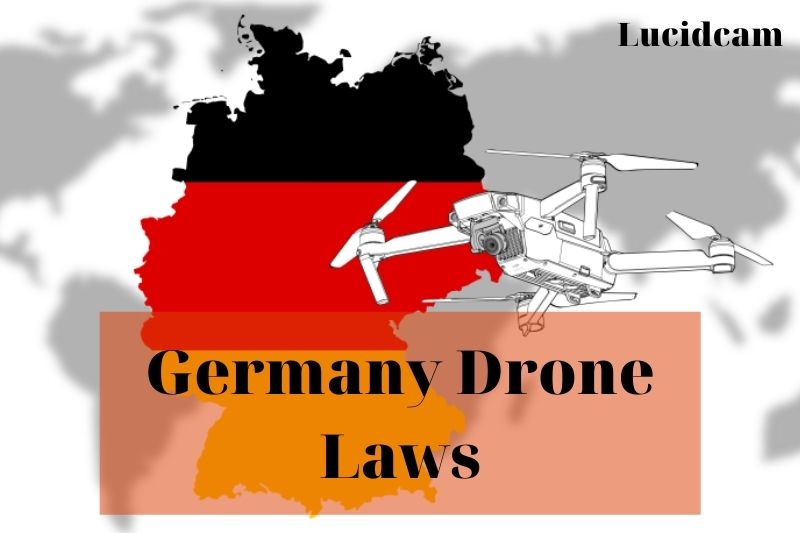- HanJin
In recent years, drones have grown in popularity and have become a favorite among people for leisure activities like capturing aerial photos and videos. However, it’s vital to realize that different nations, including Germany, have rules and regulations limiting the usage of drones.
In this article, Luicdcam will provide information on Germany Drone Laws.
Table of Contents
- 1 Germany Drone Laws
- 1.1 General Rules for Flying A Drone within the European Union
- 1.2 General Rules for Flying a Drone in Germany
- 1.3 Types Of Authorizations For The Operation Of UAS
- 1.4 Prohibitions And Restrictions
- 1.5 Open Category
- 1.6 Special Category
- 1.7 Note To Foreign Operators
- 1.8 How Do I Register To Fly A Drone In Germany?
- 2 Notes For Recreational Drone Pilots Flying In Germany
- 3 Notes on how to operate Commercial Drone Services in Germany
- 4 Safety and Security
- 5 FAQs
- 6 Conclusion.
Germany Drone Laws
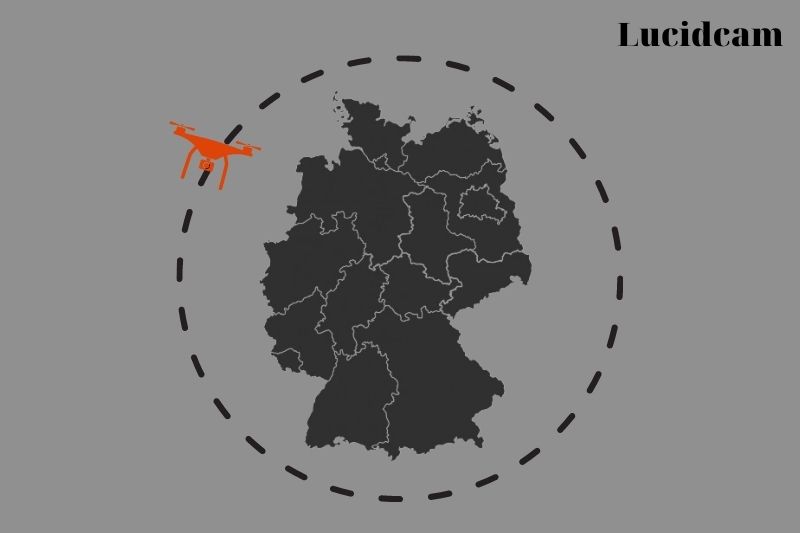
Flying your drone in Germany is legal according to Germany’s national aviation authority, the German Federal Aviation Office. However, before you fly your drone, we recommend that you learn and follow the regulations.
General Rules for Flying A Drone within the European Union
Here are some of the general rules for flying a drone within the European Union:
Operating Categories: The drone regulations within the European Union are categorized based on the weight and intended operation of the drone. The categories are Open, Specific, and Certified.
- Open Category: This group includes drones weighing less than 25kg (55 lbs) and meant for personal use, known as the Open category. To fly a drone in this category, it must have a class identification label of 0, 1, 2, 3, or 4. Drones bought before January 20, 2023, without a class identification label are also allowed in this category.
- Subcategories: Depending on the drone’s weight and class identification, it must operate in subcategories A1, A2, or A3.
- Fly Over People: To ensure safety, drones in the Open category cannot be flown over people if they weigh less than 250g (0.55 lbs) or have a class identification tag.
- Visual Line of Sight: Remote pilots must maintain a visual line-of-sight (VLOS) with their drone or be assisted by a UA observer.
- Altitude: The drone cannot be flown beyond 120m (400ft) in altitude.
- Dangerous Goods: The drone cannot carry dangerous goods or drop any materials.
If you intend to fly a drone in Germany or the European Union, you must be aware of these legislation and safety recommendations. Ignoring these guidelines might result in serious penalties such as fines, jail, or even a ban on future drone operations.
Always fly your drone safely and responsibly, respecting the privacy and safety of others. By following the regulations, you can enjoy flying your drone while contributing to the safety of everyone involved.
General Rules for Flying a Drone in Germany
Flying a drone in Germany comes with specific rules and regulations that drone operators must follow to ensure public safety and avoid penalties. Here are some general rules for flying a drone in Germany:
Authorization
If your drone weighs more than 5 kg, you must obtain authorization from the German aviation authority. This step is necessary to ensure that your drone operation is not a danger to air safety, public safety, or order.
Altitude
Drones cannot fly above 100 meters (328 feet) without a permit. However, the maximum height permitted in regulated airspace is 50 meters (164 feet).
Direct line of sight
Drone operators must always maintain a straight line of sight with their drones. This guideline is critical for preventing collisions with other drones or obstructions while also protecting persons and property on the ground.
However, exceptions may be permissible for FPV (First Person View) flights in which the drone flies no higher than 30 meters (98 feet) above the ground and weighs no more than 250 grams (.55 pounds).
Night flights
Drones weighing over 5 kilograms (11 pounds) may not be flown at night without a permit.
License and insurance
A license is required to fly a drone weighing more than 2 kilograms (4.4 pounds), and drone insurance is mandatory for all drone operations in Germany.
Restricted areas
Drones cannot be flown within 1.5 kilometers (.93 miles) of an airport or over crowds, industrial areas, disaster areas, prisons, residential areas, certain traffic routes, and several other areas designated as sensitive. Drones may not be flown over nature conservation areas protected under the Federal Nature Conservation Act.
Labeling
Drones weighing 250 grams (.55 pounds) or more must be labeled with a fireproof badge containing the name and address of the drone owner/operator.
Prohibited features
Drones that are able to record/transfer optical, acoustic or radio signals are forbidden over residential areas unless the owners have agreed to the flight.
It is essential to be aware of these rules and regulations before operating a drone in Germany to avoid legal consequences and ensure safe and responsible flying practices.
Types Of Authorizations For The Operation Of UAS
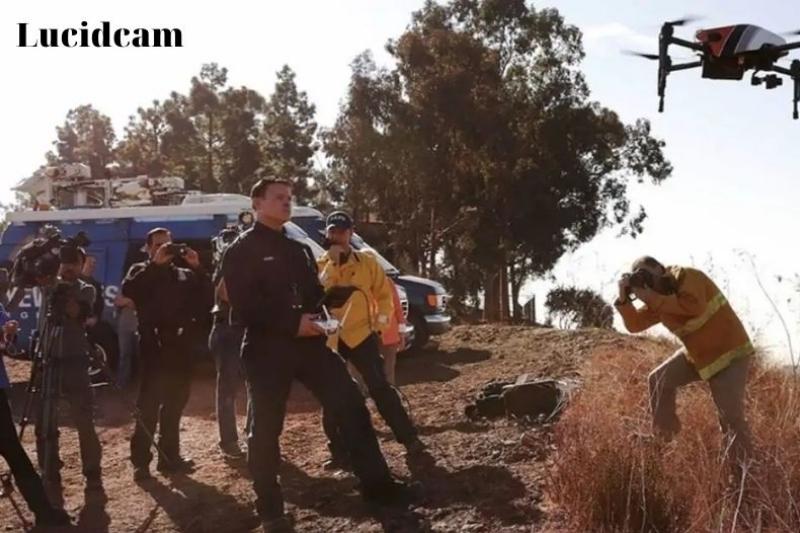
There are two distinct types of authorizations for the operation of unmanned aerial systems (UAS):
Authorization in general
- Above people and public gatherings;
- Above accident scenes, disaster zones, and other police or other security-related operation sites;
- Above correctional facilities, military complexes, industrial complexes, power plants, and other power generating and distributing facilities, unless these locations expressly permit the operation;
- or in prohibited areas.
The app for a general authorization must include the following information:
- The applicant’s name, date and place of birth, and address;
- The business’s name, as well as the registered agent’s name, address, date, and place of birth, and all employees who will operate the UAS;
- The reason for using the unmanned aircraft systems; and
- Proof of sufficient insurance for personal and property damage accidents.
Authorization on a Case-by-Case Basis
A specific authorization from the aviation authority may be obtained for UAS weighing between 5 and 25 kilograms (approximately 55 pounds). These UAS are subject to the same operational restrictions as UAS, subject to general authorization.
Along with the information required in the general authorization application, the applicant for a specific approval must submit:
- A map indicating the launch area and operating space, as well as a marked launch site (district, lot or city, street, and street number)
- A consent declaration from the property owner or other beneficiary of the launch site;
- Specific statements about the timing (date and time) and, in some cases, the number and duration of launches;
- Technical details about the UAS; information about the operator’s knowledge and experience, or proof of training;
- A data privacy statement;
- A letter of no objection from the competent regulatory or law enforcement agency.
- The aviation authority issues a specific authorization that is valid for the specified time and location.
Prohibitions And Restrictions

Here are some of the prohibitions and restrictions that apply to drone use:
Prohibited areas
There are certain places where it is prohibited to fly drones, including airports, military bases, and other sensitive areas. In Germany, drones are not allowed to fly within 1.5 kilometers of an airport and over areas with crowds, industrial zones, disaster zones, prisons, residential areas, specific traffic routes, and other designated locations.
Altitude restrictions
In most countries, drones are subject to altitude restrictions to avoid collisions with other aircraft or obstacles. In Germany, drones cannot fly above 100 meters without a permit. In controlled airspace, the maximum altitude allowed is 50 meters.
Line of sight
Drone operators must maintain a straight line of sight with their drones at all times to guarantee safe operation. This regulation is especially crucial in order to prevent accidents with other drones or objects and to protect persons and property on the ground.
Night flying
Drones weighing over 5 kilograms cannot be flown at night without a permit. This restriction is in place to ensure that drone pilots have sufficient visibility to operate safely and avoid collisions.
Licensing and insurance
Many countries, including Germany, require drone pilots to obtain a license to operate a drone weighing more than 2 kilograms. Additionally, drone insurance is mandatory for all drone operations in Germany.
Prohibited features
In some countries, drones with certain features are prohibited, such as those that can record or transmit optical, acoustic, or radio signals. These features are typically banned over residential areas unless the owners have agreed to the flight.
Drone pilots must know and follow these rules to keep people and things safe. If they don’t obey the rules, they may get in trouble with the law, get fined or even face criminal charges. They could also cause harm to people or property.
Open Category

Because of the low risk, there is no need for either prior authorization from the competent authority or a declaration from the drone operator. The drone must have a total takeoff weight of less than 25kg and must be operated within sight of the operator at an altitude of no more than 120m.
Special Category
Because of the moderate risk involved, this category requires authorization prior to operation. Except in certain standard scenarios, where an operator declaration suffices, permission is granted based on the mitigation measures that have been identified during an operational risk assessment.
Note To Foreign Operators
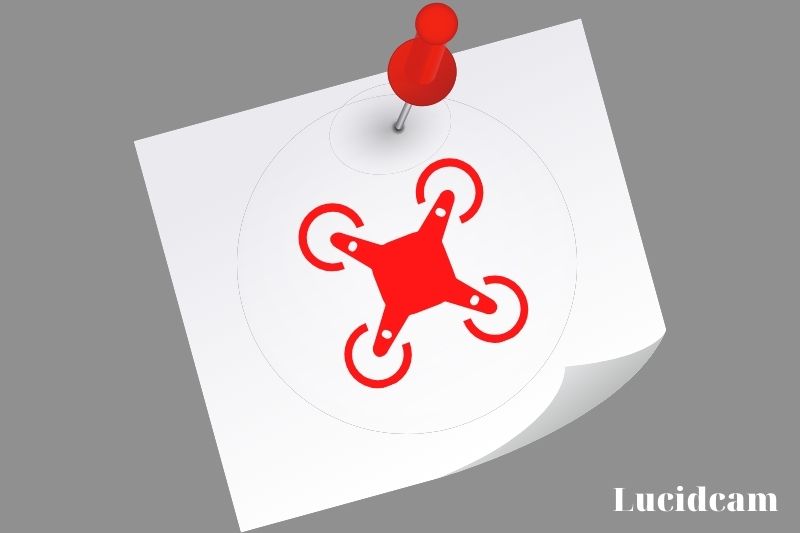
Operator Registration (Non-EU Residents)
- Register as an Operator if you’re coming from outside the EU and you’re flying your drone for the first time in an EU country.
- After registration, you will be issued a unique Operator Registration Number which you must attach to your drone. You must attach the same number to all your drones, even if you have multiple.
- You cannot fly in NO FLY ZONES and must stay at least 8 km from airports/heliports.
- You must not register if you have already carried out operations in an EU country before you go to Germany. Always register to the country in which you flew first.
- You must pay a registration fee to register successfully
Remote Pilot Certificate (Non-EU Residents):
- You must have a Remote Pilot Certificate from an EU country if you wish to fly your drone in Germany.
- Register online with Remote Pilot School to receive the A1/A3 Certificate.
- For those who wish to fly a drone in an ‘Open’ category, in subcategories, A1/A3, will need to pass an exam and complete online training.
- Pass is 75%, and you can try three times to get there.
- After passing your exam, your remote pilot certificate will be issued to you. It will have a validity of 5 years.
- If you intend to fly drones in Germany, you must have your Remote Pilot Certificate. You will need it to present the authorities.
You must be familiar with Germany’s drone regulations before you can fly your drone there. The drone regulations in Germany are quite strict compared to the ones in the United States.
These rules must be followed by both domestic and international drone operators:
- For drones that weigh more than 500g, a valid insurance certificate will be required.
- Drones that weigh more than 250g must be marked with a fire-resistant badge. This badge should contain the following information:
- Name of the proprietor
- Address
- Avoid flying drones in densely populated areas and prohibited zones.
- Be respectful of the privacy of others when flying your drone.
- If they do not consent, the transmission of footage is strictly prohibited.
- Keep your flight at 400 feet above the ground.
- Your drone’s visual line should always be clear
- Keep a minimum distance of 30m from buildings and people who are not involved in flight operations.
- Fly during daylight hours
- Fly only when visibility is good
How Do I Register To Fly A Drone In Germany?
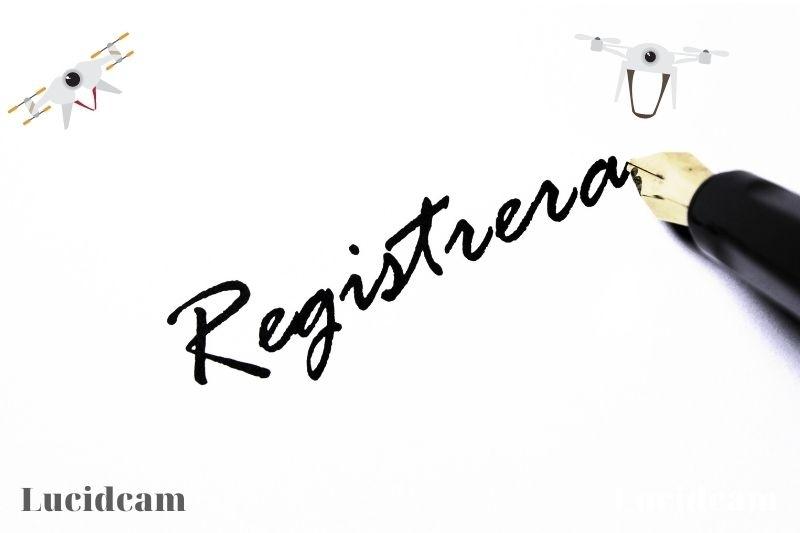
European Regulation (EU 2019/947) states that registration is required for UAS operators, but not for UAS owners.
The UAS Pilot (also known as Remote Pilot (RP)) is the person who controls the UAS flight controls. They are responsible for all aspects of safety during flight operations.
The UAS Operator is the individual or company responsible for overseeing operations and giving flight instructions. This legal entity or person is responsible for all operations of the drone. Often, the Pilot and Operator are one person in the OPEN category.
Who should sign up?
Operators must register in order to be included in the OPEN category.
- UAS with a maximum mass of 250g or more
- UAS with a mass less than 250g, but:
- can operate at speeds exceeding 90km/h
- If these UAS are not toys, they are equipped with a microphone or a camera.
* A UAS means a toy if it is intended for children younger than 14 years old and meets all safety requirements. These standards limit the UAS’s capabilities (size, weight, and non-dangerous spare part, but no powerful motor). ): See Directive 2009/48 / EC 18 June 2009 on the safety of toys
All operators must register under the SPECIFIC category.
Natural persons are only allowed to register in the country they live in.
Register legal persons in the country where they have their principal business location.
Only one Member State can register at a given time.
How can you register in Germany to fly your drone?
- Register as an operator at the online registration link
- The UAS operator registration number is valid for one year. It must be renewed every other month following the same process. Unless the number is permanently removed from the register, the operator will continue to use the same number.
Notes For Recreational Drone Pilots Flying In Germany
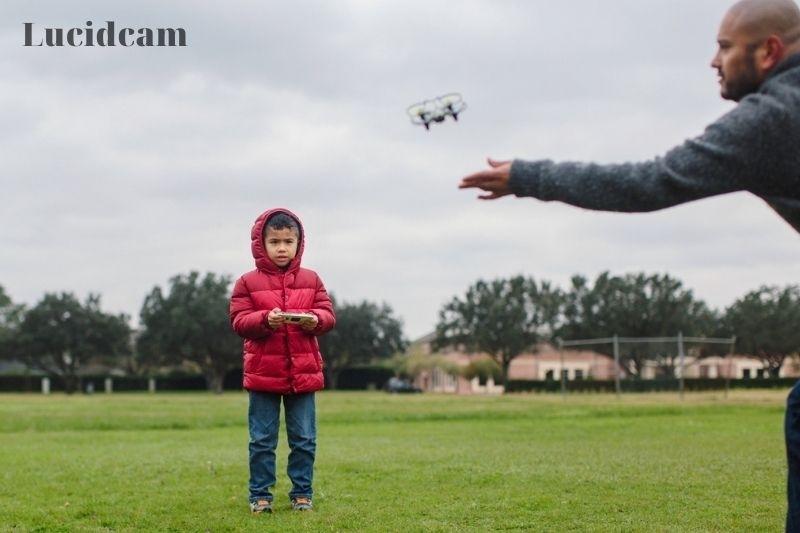
Drone flying is only permitted in Germany during daylight hours. Special approval is required for night flights.
Private drone flying in Germany is allowed, but only as per the following conditions:
- There is no special permission required.
- 100m / 328ft Maximum Height
- > 100m / 328ft: Special Permit Required ( (If you’re in a restricted zone, then maximum altitude will be 50 m)
- The drone should always be visible (line of sight)
- The maximum weight allowed for take-off is 5kg/11lbs without special permission Special permission is required for 5kg/11lbs
- Requirements for labeling including complete name and address
- Always have insurance for drone liability.
- Please refer to the EASA general rules above
Notes on how to operate Commercial Drone Services in Germany
If a safe operation is possible, state aviation authorities could authorize commercial UAS operations beyond the operator’s visible line of sight. Operation beyond the operator’s visual line of sight is currently prohibited.
A pilot certificate is required for commercial UAS users. The test would require knowledge of aviation law and aeronautics. The Federal Aviation Administration would issue this certificate.
You must:
- Respect the provisions of the Commission Delegated Regulation 2019/945 (as amended) and the Commission Implementing Regulation 2019/947 (as modified).
- Register your drone at a national level, get a drone identification number and a permit to fly.
- A certificate of authorization is required for drones that weigh more than 25kg
- Third-party liability insurance must be purchased with a minimum limit not exceeding one million euros
- You must be at least 18 and have a National Drone Pilot Certificate.
Not permitted to fly in restricted areas
Safety and Security
When it comes to flying drones, safety and security are major issues. Drones may endanger persons and property if not used properly and responsibly. Drone pilots must take certain safety and security precautions to reduce these hazards.
- Pre-flight check: Drone pilots should check their drone before flying to make sure it is working well and that all parts are working correctly. This check should include inspecting the propellers, batteries, and other components, as well as verifying that the GPS signal is strong.
- Weather conditions: It is important to only fly drones in suitable weather conditions, which means avoiding flying in rain, snow, or strong winds. Pilots should also avoid flying in extreme temperatures or in conditions with poor visibility.
- Obstacles: Drone pilots should obstacles such as trees, buildings, and power lines, and should avoid flying near them. Obstacles can pose a risk of collision and can cause damage to the drone or other property.
- Emergency procedures: Drone operators should land the drone safely and take appropriate action to avoid harm to people or property.
- Privacy concerns: Drone operators must respect the privacy of people and not fly their aircraft over private property without authorization. Furthermore, drones should not be utilized for surveillance without prior authorisation.
- Interference: Drone pilots should avoid flying their drones near areas with high levels of electromagnetic interference, such as power stations or radio towers. This can cause the drone to lose control or malfunction.
- Security: Drones can also pose security risks if they are used for malicious purposes, such as spying or carrying out attacks. To mitigate these risks, drone pilots should be aware of any security regulations and should take measures to secure their drones and data.
By following these safety and security measures, drone pilots can help to ensure the safe and responsible operation of their drones. This not only protects people and property, but also helps to build public trust in the use of drones.
FAQs
Are drones legal in Germany?
Yes. Drones in Germany are legal.
Germany’s drone laws can be divided into two categories: commercial and recreational. Each category is subject to strict rules and regulations that govern its operation. When determining their classification, it is important to consider the drone’s weight.
Do I need insurance to fly drones in Germany?
Do I need to ensure my drones? Yes. In Germany, drone insurance has been compulsory since 2005. This applies regardless of whether the drone is being used commercially or privately.
What drones are permissible without a drone license?
In this context, is a drone pilot who uses a drone “recreationally”. A license is not required. All commercial drone flights fall under the FAA’s Small UAS Rule (also known as Part 107).
What are the rules for drones under 250g Germany?
The drone has a maximum take-off mass of less than 25 kg (55 lbs). The remote pilot keeps the drone at a safe distance away from people. The drone will not be operated directly over people unless it has a class identification label or is lighter than 250 g (0.55 lbs).
What kind of Germany military drones?
The German military uses a variety of drones for various purposes, including surveillance, reconnaissance, and combat operations. Some of the drones used by the German military include:
- Heron: a medium-altitude, long-endurance drone that can stay in the air for up to 24 hours at a time.
- Euro Hawk: a high-altitude, long-endurance drone used for intelligence, surveillance, and reconnaissance missions.
- KZO: a tactical UAV used for battlefield reconnaissance and target designation.
- ALADIN: a hand-launched UAV used for reconnaissance and surveillance operations in urban environments.
- Luna: a small UAV used for battlefield reconnaissance and surveillance.
It’s important to note that the use of military drones in Germany is subject to strict rules and regulations, and they are only used for legitimate military purposes
Conclusion.
In Germany, there are very few laws that can be said to govern the use of drones. Under the current legislation, it is not necessary to obtain a license to fly a recreational drone use. However, as a pilot of a drone, you must observe the following rules: A pilot should always adhere to the prevailing legislation. In particular, this refers to aviation law, road traffic regulations, and nature protection legislation.
Lucid hopes this article will be helpful for you. Thank you for reading. Here is the full information about German drone law, if you are interested in knowing more about other information. Let’s check here:
- Ohio Drone Laws 2023: Top Full Guide
- Philippines Drone Laws 2023: Top Full Guide.
- Oregon Drone Laws 2023: Top Full Guide For You.
